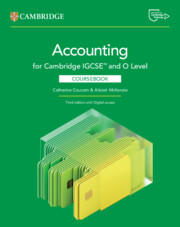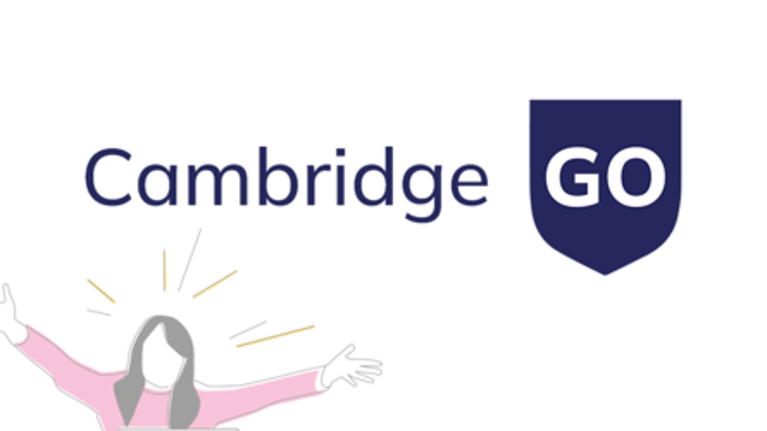Cambridge IGCSE™ and O Level Accounting Digital Teacher's Resource Access Card
Overview
Teaching inspiration, lesson ideas and language support our digital Teacher's resource is the perfect tool to support your day-to-day lesson planning. It follows the same chapter structure as the coursebook, so you can confidently use it to support your lessons. Discover additional support for your teaching, including advice on areas that students may find challenging and formative assessment guidance. This digital Teacher's resource supports the Cambridge IGCSE™, IGCSE (9-1) and O Level Accounting syllabuses (0452/0985/7707) for examination from 2027. Access your digital resource via Cambridge GO, where you will find suggested answers for all questions in the coursebook and workbook.
Features
- Syllabus and topic introductions provide an overview of the content knowledge, skills and learning objectives, as well as links to other topic areas in the syllabus.
- Clear guidance through starter, main and plenary activities to support lesson planning, differentiation and assessment for learning.
- Learning intentions and success criteria are included so you can easily copy and paste them into your own lesson plans.
- 'Language support' feature provides additional guidance on how to support students with language, particularly areas they may find challenging.
- 'Common misconceptions' feature explains how to identify where students are struggling and how to overcome these challenges.
- Suggested teaching hours for each chapter alongside a breakdown of the topics to guide you through the syllabus.
- Suggested answers for all questions in the coursebook and workbook.
Contents
- Introduction
- How to use this series
- How to use this book
- Acknowledgements
- Section 1. Chapter 1. Introduction to accounting
- Chapter 2. Double entry book-keeping Part A
- Chapter 3. The trial balance
- Chapter 4. Double entry book-keeping Part B
- Chapter 5. Petty cash books
- Section 2. Chapter 6. Business documents
- Chapter 7. Books of prime entry
- Section 2 practice questions
- Section 3. Chapter 8. Financial statements Part A
- Chapter 9. Financial statements Part B
- Chapter 10. Accounting rules
- Chapter 11. Other payables and other receivables
- Chapter 12. Accounting for depreciation and disposal of non-current assets
- Chapter 13. Irrecoverable debts and allowance for irrecoverable debts
- Section 4. Chapter 14. Bank reconciliation statements
- Chapter 15. Journal entries and correction of errors
- Chapter 16. Control accounts
- Chapter 17. Incomplete records
- Chapter 18. Accounts of non-trading organisations (clubs and societies)
- Chapter 19. Partnerships
- Chapter 20. Manufacturing accounts
- Chapter 21. Limited companies
- Chapter 22. Analysis and interpretation
- Chapter 23. Technology and sustainability.
Brighter Thinking Blog
Keep up to date with the latest classroom tips and educational trends from our brighter thinkers.
Visit the blogCatalogues and Ordering
Looking for something in particular or just browsing? View our catalogues to see our full range of print and digital books.
View and downloadAdvice on useful tools
Advice on useful tools, activities and timetabling from teachers experiencing school closures.
Cambridge GO
All our supporting resources have now moved to Cambridge GO – the new home for your Cambridge digital content.
Listen to our podcast
Listen to our podcast to discover teaching inspiration & advice from leading educational thinkers.






